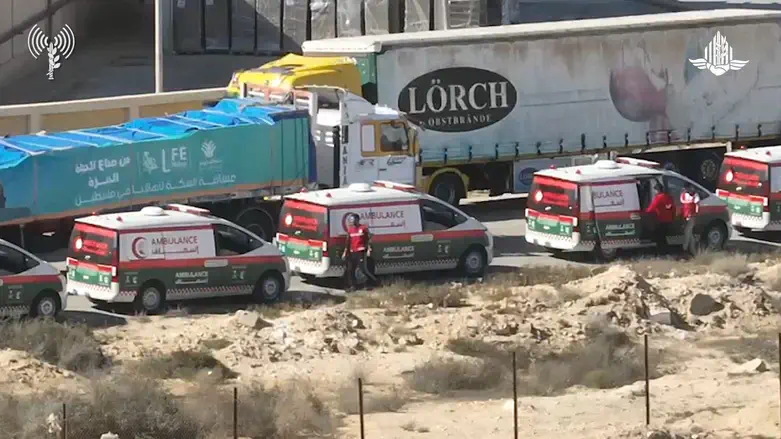
Qatar on Sunday strongly condemned Israel’s decision to halt the entry of humanitarian aid into the Gaza Strip, calling it a violation of international law and the recent ceasefire agreement.
In a statement issued by the Ministry of Foreign Affairs, Qatar described the move as a “clear violation of the ceasefire agreement, international humanitarian law, the Fourth Geneva Convention, and all religious principles.”
The Ministry also expressed its firm opposition to the use of food as a weapon of war, declaring, “The State of Qatar strongly rejects the deliberate starvation of civilians.” It called on the international community to “hold Israel accountable and ensure the safe, continuous, and unhindered delivery of humanitarian aid to all areas of the Gaza Strip.”
Qatar also reiterated its unwavering support for the Palestinian Arab people and their rights to self-determination.
“The State of Qatar reaffirms its steadfast position in support of the just Palestinian cause and the legitimate rights of the Palestinian people,” the statement said. It further emphasized Qatar’s long-standing stance advocating for “the establishment of an independent Palestinian state based on the 1967 borders, with East Jerusalem as its capital.”
The condemnation came after Israel announced it would be halting the entry of humanitarian aid to Gaza, in response to Hamas’ rejection of US envoy Steve Witkoff's proposal for a temporary ceasefire during the Ramadan and Passover periods.
Hamas spokesman Hazem Qassem said on Sunday morning that his organization would not release the Israeli hostages held in Gaza except in an exchange deal that would be the product of negotiations on the second phase of the ceasefire agreement.
Overnight, the Prime Minister's Office announced that the Israeli government had agreed to adopt Witkoff’s proposal.
As part of the agreement, half of the hostages - alive and dead - will return to Israel on the first day of the agreement and at the end of the period, if an agreement for a permanent ceasefire is reached, the rest of the hostages, living and dead, will return to Israel.
Witkoff proposed the plan due to an understanding that currently, there is no way to bridge the gaps between Israel and Hamas regarding the end of the war, and additional time is needed for talks on a permanent ceasefire.
Meanwhile, Egypt and Qatar are trying to bridge the positions of Israel and Hamas regarding the continuation of the ceasefire in the Gaza Strip.
A senior Egyptian official told the Al-Araby Al-Jadeed newspaper on Sunday that Egypt has submitted a proposal to extend the first phase of the ceasefire agreement for an additional two weeks.
According to the proposal, during these two weeks, negotiations will take place regarding the start of the second phase of the ceasefire agreement, and Hamas will commit to transferring three live hostages and three bodies of hostages to Israel.
The Egyptian official estimated that Hamas would agree to this proposal, and Egypt is pinning its hopes on the US to exert pressure on Israel to accept it, as it is not interested in renewing hostilities.
